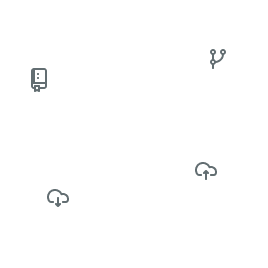Your Frontend. Your Content. Your Backend.
Mattrbld is a headless content management system for teams and individuals who don’t want to be locked into a specific platform or framework. It offers a fast and flexible way to create, edit and manage content while giving developers complete control over the shape of the data, so they are free to use any frontend technologies they like.
Design
Familiar, but better
If you’ve used a content management system before, you’ll be able to use Mattrbld. For a content editor, it works almost like any other modern CMS.
Flexibility
Freedom at heart
With Mattrbld, everything is decentralised. You control where your content is stored. In what shape it is delivered to a frontend. How it is presented to the public.
Control
User centred
User experience is a core pillar of Mattrbld. It leverages modern technologies to simplify complex processes while leaving you in control. No need to fight against the system.
Git-based
Flexible
Decentralised
Easy to use
Built for the Jamstack
Unlimited projects
Unlimited collaborators
Live content preview
Mattrbld is a Git-based headless CMS. It helps you manage the content of your website, app, or any other kind of project, without making assumptions on how that content is presented. On top of that, since it’s Git-based, your content can live alongside your code and you get all the power of a version control system, should you need it, while not depending on a third-party API for delivering your content.
Decoupling the content from its presentation has a number of advantages, like not being bound to specific technologies for your frontend and being able to make full use of modern development practices such as the Jamstack.
It’s pronounced “matter – build”. The name is derived from “frontmatter”, a concept of storing metadata often seen in Jamstack websites based on Markdown files, since Mattrbld can help you easily build and manage the frontmatter of your content.
Mattrbld was my final project for my BA degree in communication design at UAS Munich, which I handed in in October 2021. Along with that I published a first public alpha version, which was superseded by a beta version released in August 2022 that you can try out today.
Keep in mind, however, that while it is fully functional, there might still be some bugs and missing features. You can learn more about these in the article on limitations.
The project will likely have a 1.0 release when the current build-system is switched from Webpack to Vite in preparation for the open source release.
I created Mattrbld because I’ve worked with plenty of people who wanted a way to manage the content on their website by themselves, but really didn’t need the power (and maintenance cost) of a monolithic CMS like WordPress, Drupal, etc. and the existing solutions didn’t really have all the features and / or the UX that I would want.
On top of that, those solutions often also become a sort of man-in-the-middle between the content and the Git repository it’s stored in, which has some privacy concerns. Mattrbld interfaces directly with your repository and doesn’t store any of your content on external servers, so you know exactly where your content is at any given time.
If you’re looking for a drag-and-drop website builder or a solution that requires minimal or no code from your end, Mattrbld is not the right tool for the job.
However, if you’re a developer or an agency that often creates websites for small to medium sized clients and you want to give them an easy way to update their site without having to rely on you for managing content, while at the same time not limiting yourself to a particular framework or frontend-technology, then Mattrbld is for you!
Mattrbld is going to be an open source project, so it will be free to use for self-hosting. There is also an official instance at app.mattrbld.com you can use to try out Mattrbld for free today, although it comes without a guarantee for availability.
Mattrbld is currently hosted in a private repository, but it will be open source in the future—currently, the first open source release is planned for the end of 2024. You can read more about the current blockers on the 2024 Roadmap.
Mattrbld is a progressive web application, a website that works like a traditional application (and can in fact be installed on your device just as any other app). It’s available even when you don’t have an internet connection, so you can create and edit content any time—although you’ll obviously not be able to publish something while offline.
When you import a project into Mattrbld, it stores a copy of your content from the Git repository on your device and allows you to model schemas for your content. After those have been set up, you can create new content that fits those schemas and edit existing pieces of content, just like you would in a more traditional CMS. Once you’ve made your changes, you publish them, which sends them back to the Git repository.
If you have a CI / CD service hooked up to your repository, this action can trigger a build of your website, which could then be published to your webspace. To learn more about that, you can check out how the Jamstack, Git-based CMS, and modern static site generators work.
At the end of the day, Mattrbld is built to do one thing and to that thing really well: allow you to manage your content, whatever that may be.
Due to the technologies Mattrbld is built on and the way it functions, it’s not ideal for media-heavy sites, or content that consists largely of binary data.
In its initial form, it will not support technologies like Git LFS and while it strives to be as serverless as possible, unfortunately many of the large Git providers require the use of a proxy server when interfacing with them through a web browser.
For now, Mattrbld stores your content in JSON-files and Markdown files with YAML frontmatter, since they are the easiest to work with while also being human-readable and -editable. Support for more formats is planned.
For more detailed information on technical limitations and missing features, please check the respective article in the documentation.
I’m aware that this is not ideal—but I think if you know of these limitations and keep them in mind, you’ll have an easier time deciding whether Mattrbld is right for your project.



